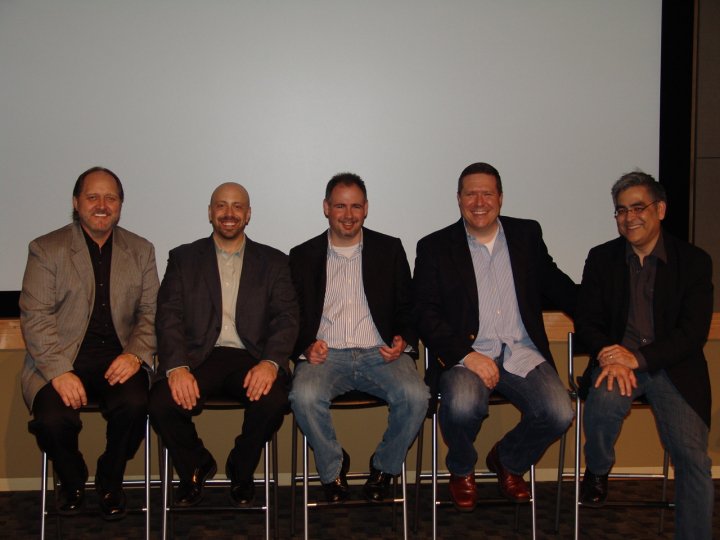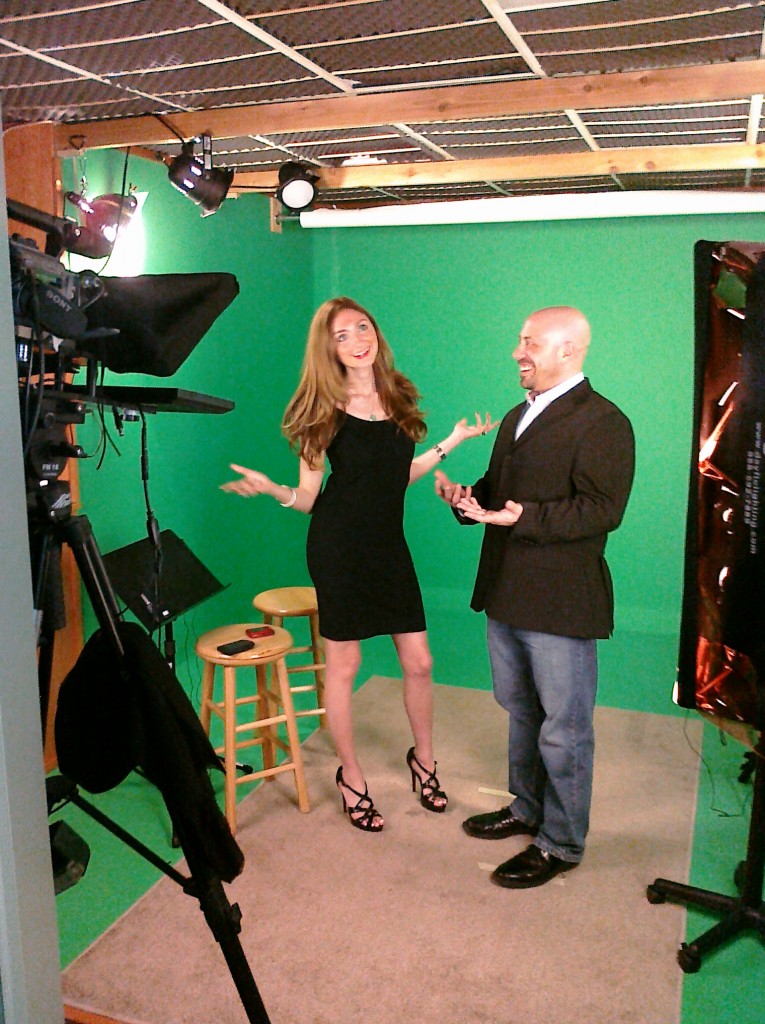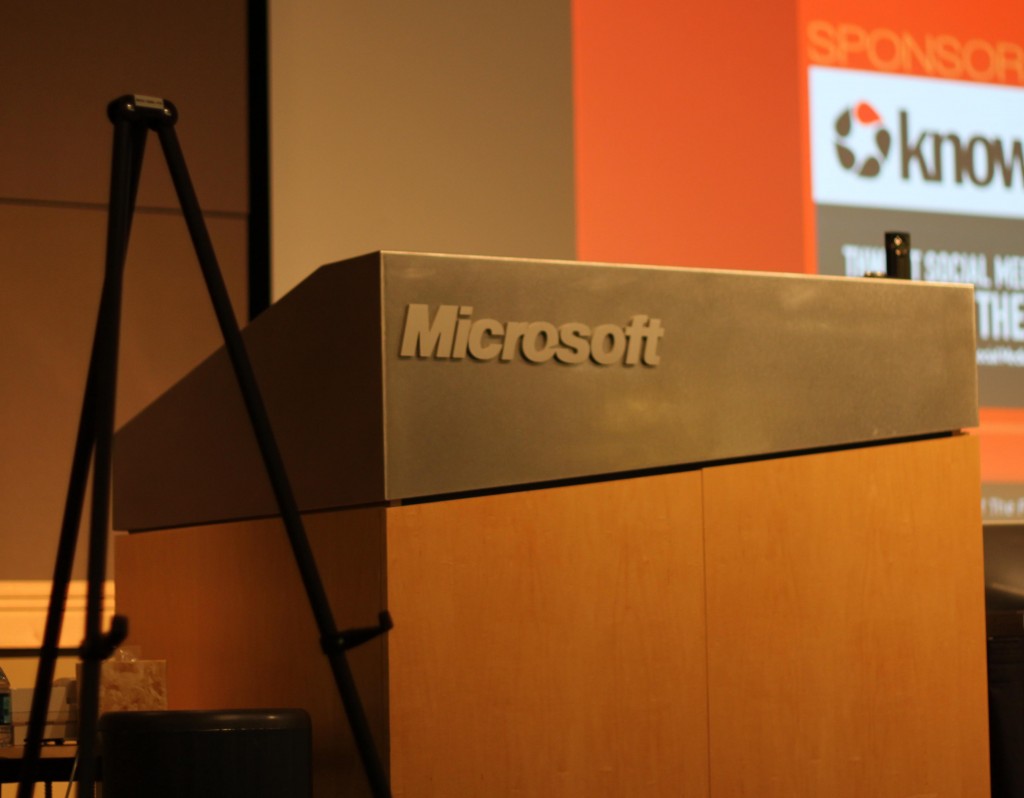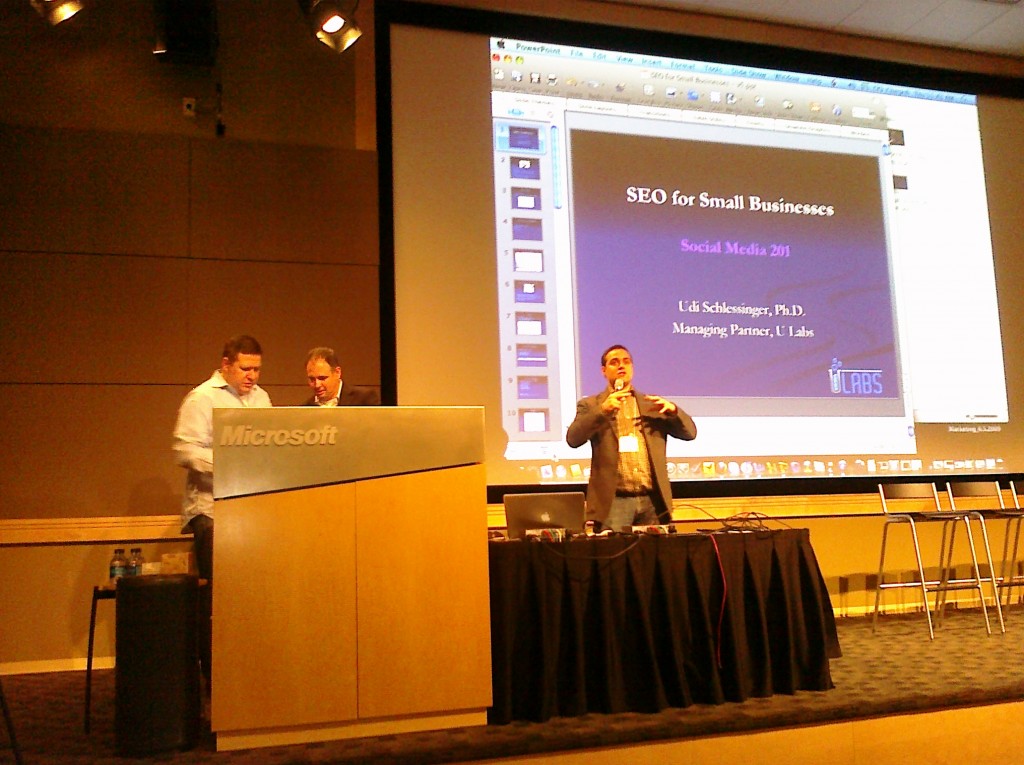
Before I begin, I’ll diverge a tiny bit: Years ago I used to get quite nervous when I had to do any form of public speaking. While I can’t say this is second nature to me even now, a simple advice given to me by my Ph.D. adviser has really made a big difference. His advice was very (very) simple: “try to enjoy it”. After years of public speaking, I can say: it’s true.
I give the same advice to people who are interviewing for jobs. It might sound a bit surprising, but when I used to interview for positions myself (before becoming self employed) 95% of the time I genuinely enjoyed my job interviews – after all, it gives an opportunity to speak about myself and my accomplishments – so what’s not to like? Probably as a result, I used to be very good at job interviews. I believe the same kind of logic applies for public speaking. When one talks about a subject he or she is an expert about and likes it, the passion comes through and people get it.
Ok, back on track. Social Media 201: What a blast! Hard to summarize these three+ intense days.
This conference originated from the mastermind calls of a group I’m a member of. We have weekly calls, though since we work on joint projects, sometimes we form subgroups and talk twice or even three times a week. We’re a pretty big group and we’re spread out all over the US. As you may imagine, speaking so often with a group of people whom you share both your professional and technical experiences as well as personal lives brought us together, and we have all become close friends even though most of us have never met in person.

From left to right: Bille Baty, Darren Williger, Udi Schlessinger (me), Mike Whitmore and Eric Weaver
Social Media 201 included several of us: myself, Darren Williger, Bille Baty and Mike Whitmore, who co-organized the event with Joe Kennedy. It was more than exciting to finally meet my close friends in person – and in fact, it felt like we already know each other. Even “fate” made it more excited: Mike picked me and Bille, we came out of the elevator exactly when Joe and Darren came out of another elevator… the timing could not have been better.
So, to me, and I believe everyone else, the speakers dinner on the first day was fantastic. Even though the food was great, it was the company that really mattered.
The next day we rented a recording studio. Our goal was to create professional videos that can be used in group projects as well as by each of us for his/her own products. Since I’ve never been in a professional studio (green screen and all), and in fact, kind of avoid doing videos since I never like the way I come off, to me this was a very new experience. However, this was a LOT of fun.

A professional recording studio

Darren and me

Darren and Kris talk about dating (in Social Media!)
We took turns interviewing each other. Not sure which background I want for my interview with Darren – which was as serious as we get (we never get serious!) – perhaps the Matrix’s scrolling green code. Trust me, it’ll fit well with what we discussed (the future of advertising in the context of the increase in mobile devices: Smartphones, iPads, etc).

Social Media 201 at Microsoft Headquarters
The next day was the main event: Social Media 201. The conference was sponsored by Microsoft and Comcast in addition to several other companies, and took place at Microsoft’s headquarters in Redmond. Since I’ve known Microsoft and used their products since the mid 80s, it was exhilarating visiting MS HQ. I certainly hope it’s not the last time!
The conference itself was
superb. Obviously, the main theme was social media and how small to medium businesses can leverage it to their advantage, and do so
correctly. Eric Weaver gave a fantastic keynote speech. Jeff Dance, Kris Ruby and Bille Baty shared their expertise on various aspects of this process. Darren Williger gave an amazing keynote speech about the
future of social media (check out the site he made for this topic).

My talk about SEO for Small Businesses
My talk was about SEO for small businesses: how small businesses can improve their positioning on all search engines. Although this is not exactly Social Media, considering the target audience, we felt this fit right in – and in fact, someone tweeted at some point “how come no one mentioned SEO so far? – only to have me talk afterwards.
I think it went very well: many people approached me during the break, quoted me in tweets, and sent email to let me know they liked it. In addition, I really enjoyed giving my talk, which might be a reason why it went so well. My favorite tweet about my talk was “Dude’s hip hop” – since I used the phrase “it’s all about the Benjamins” as a reference to getting more business 🙂

SeattleWineGal and Kris
After this was done, we went to a tweetup organized by SeattleWineGal, Seattle’s female answer to Gary V 🙂 This was great, and I got to meet a lot of great people.
And then it was all done. After a few days of bonding with good friends who became much closer in this time, I have to say I was quite sad to say goodbye. Darren Williger is a walking, amazingly funny, personification of energy. Bille Baty is a legend – just being next to him makes a person wiser. I didn’t know Kris Ruby until before but she’s fun, smart – and our group will be much enhanced by her joining.
This may sound a bit melodramatic, but that’s how it feels. Fantastic 3 1/2 days.
Here are a number of websites and blogs that mentioned Social Media 201. It got rave reviews!
http://www.techflash.com/seattle/2010/04/guest_post_social_media_201.html
http://seattledesigner.blogspot.com/2010/04/business-card-is-still-currency-in.html
http://eco-maven.com/2010/04/20/a-social-media-freshman-in-the-sophomore-trenches%E2%80%A6-sm201-conference/
















